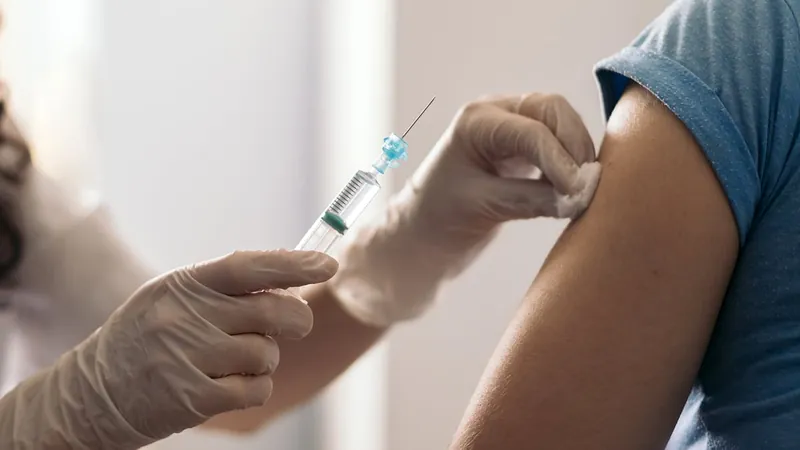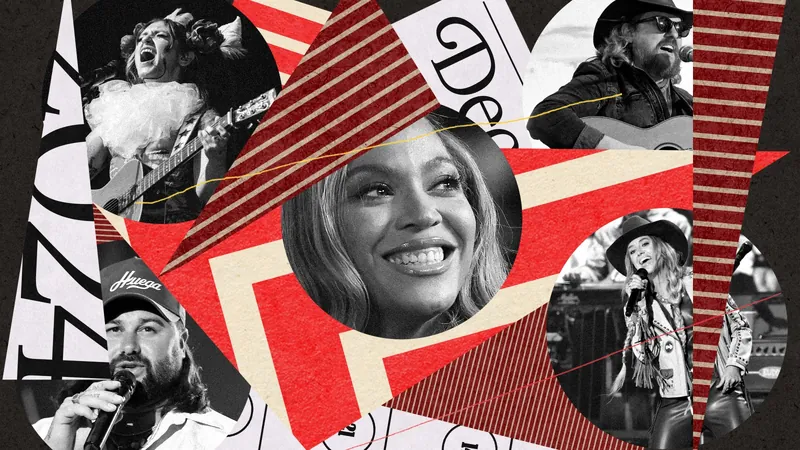
The Truth Behind American Attitudes Toward Food Chemicals and Vaccines
2024-12-09
Author: Ling
Introduction
In a recent poll conducted by DailyMail.com, a striking number of Americans resonate with Robert F. Kennedy Jr.'s assertion that the U.S. food supply is inundated with harmful chemicals. However, when it comes to vaccines, including COVID-19 shots, public sentiment diverges significantly, revealing a complex landscape of health beliefs.
Poll Findings on Food Chemicals
The survey gathered opinions from over 1,000 adults regarding ultra-processed foods and vaccinations, particularly in light of RFK Jr.'s nomination for the head of the Department of Health and Human Services (HHS). The results are telling: approximately two-thirds of respondents agree that American food is overloaded with unhealthy oils, fats, and additives, contributing to the alarming obesity rates across the nation. Notably, 40% expressed strong agreement, while a mere 6% disagreed.
Political Affiliations and Food Attitudes
When diving deeper into the political affiliations of respondents, the poll indicated that Republican participants were more critical of ultra-processed foods, with 76% agreeing on their unhealthiness, compared to 64% of Democrats. This stark difference highlights a potential divide in how dietary perceptions intersect with political beliefs.
Impact of Age on Food Perspectives
Age also plays a crucial role in these views. The findings suggest that Americans aged 30 to 49 are particularly vocal, with 67% believing that the state of U.S. food is a significant factor in the obesity crisis. Meanwhile, younger generations, including millennials and Gen Z, showed slightly lower agreement levels at 59%.
Racial Demographics in Dietary Opinions
Looking at racial demographics, 69% of white respondents acknowledged the unhealthiness of the food supply, compared to 66% of Hispanic respondents and 55% of Black respondents. This data reflects the broader public health concerns as the CDC reports that nearly 40% of Americans are now classified as obese, a trend attributed to the increased availability of ultra-processed foods and a sedentary lifestyle.
Vaccination Confidence Levels
In terms of vaccinations, Americans displayed a more nuanced attitude. The poll revealed that the MMR vaccine (measles, mumps, and rubella) garnered the most support, with 67% of respondents expressing comfort in receiving it. In contrast, COVID-19 vaccines, including boosters, received the least endorsement, with only 51% expressing confidence in them.
Misinformation and Vaccine Hesitancy
Interestingly, one in four individuals reported being 'very uncomfortable' receiving COVID vaccines, likely influenced by the surge of misinformation propagated by certain figures, including RFK Jr. His alarming claims, asserting that vaccines could lead to autism — a theory widely discredited by scientific communities — may have exacerbated the hesitancy surrounding vaccinations.
Discussion on Vaccine Safety
While the misinformation on vaccine side effects continues to circulate, it is crucial to highlight that COVID vaccines have proven effective in saving millions of lives globally. Though rare serious side effects exist, such adverse reactions occur in roughly one in 200,000 individuals, according to federal data.
Conclusion
In conclusion, while many Americans express apprehension about food safety and its impact on public health, their confidence in vaccines remains robust for traditional immunizations, with notable exceptions for COVID-19. This duality in public perception underscores the urgent need for clearer communication and education surrounding both food policies and vaccination mandates to ultimately enhance public health outcomes.


 Brasil (PT)
Brasil (PT)
 Canada (EN)
Canada (EN)
 Chile (ES)
Chile (ES)
 España (ES)
España (ES)
 France (FR)
France (FR)
 Hong Kong (EN)
Hong Kong (EN)
 Italia (IT)
Italia (IT)
 日本 (JA)
日本 (JA)
 Magyarország (HU)
Magyarország (HU)
 Norge (NO)
Norge (NO)
 Polska (PL)
Polska (PL)
 Schweiz (DE)
Schweiz (DE)
 Singapore (EN)
Singapore (EN)
 Sverige (SV)
Sverige (SV)
 Suomi (FI)
Suomi (FI)
 Türkiye (TR)
Türkiye (TR)